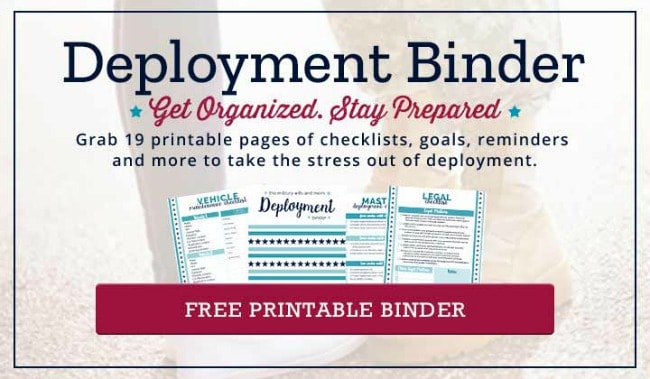This is a sponsored post written by me on behalf of Navy Federal Credit Union. All opinions are 100% mine. Navy Federal is federally insured by NCUA.
Remember back when extreme couponing was a big shtick?
I’d grab my big binder, buy 5 newspapers every Sunday to clip and organize all the coupons, and then try to buy 26 tubes of toothpaste for $3.
Things have changed.
First of all, I have three kids and a dog. Trying to puzzle together one-off grocery deals and run to each grocery store in my local area is no longer how I want to spend my time.

Second of all, most of what has a coupon isn’t something I’d necessarily buy and use.
What we all need as busy parents is a simple and sustainable approach to grocery shopping for the items our families actually want to consume.
1. Consider purchasing meat, eggs and produce from a local farmer.
Knowing where your food comes from is becoming more important than ever. This year, we opted to purchase one-quarter of a grass-fed cow from a local farmer for our family of five.
You get the benefit of knowing how the animal was raised and what it ate. You also get the benefit of skipping the middle men (i.e. the grocery store and everything in between) to keep the cost down. All this translates to high quality meat for a low price per pound.
We also found another local farmer to purchase pasture-raised chickens and chicken eggs. For the quality of food we’re getting, the price is much lower than anything we’d find in the store.
Everything is kept in a small deep freezer we snagged off Facebook marketplace.
2. Costco obviously.
This has saved us a significant amount of money in the past year.
Choose your warehouse bulk-buying store de jour. There are several discount warehouses to choose from, and Costco is what worked best for us.
Make a list of your home food staples – we consistently have a list of about 20 items we purchase in bulk that are much cheaper per unit than if we purchased from a regular grocery store.
There’s just one caveat: Only send the person who does not allow random items to fall into the cart while shopping. Keeping a grocery budget at a bulk warehouse only works if you stick to the list.
3. Always shop prices to unit.
When comparing prices, I always take the price and divide it by the unit of measurement (ounces, pounds, milliliters, etc.). I do this for the three most common stores I use for groceries. Then, we have a running list of items we typically buy at one store over another.
Yes, not only do I compare prices in store between brands, but I also compare prices between stores.
Costco is not always the cheapest!
Each store seems to have their specific items that are truly a deal over other stores.
4. Buy ingredients over convenience foods.
I’ll admit there are somethings not worth the time of making from scratch. For me, it’s pasta. I’m not going to save that much money making pasta from scratch.
However, making pizza using ingredients over something pre-made will save a significant amount of money week-over-week.
I can make a pizza at home for about $3. That’s about 50% cheaper than your lowest quality frozen pizza and about 80% cheaper than ordering out from a pizza place.
Oatmeal and popcorn are another two examples.
You can make a bowl of oatmeal significantly cheaper from a large bag of old fashioned rolled oats than if you bought the instant oatmeal packets. Buying popcorn kernels and popping them stovetop is significantly cheaper than buying microwave popcorn or a pre-popped bag of popcorn from the snack aisle.
And best of all, you can control the ingredients.
5. Keep a shared digital list with your spouse.
Nothing eats away at a grocery budget more than buying ingredients at the last minute. Not to mention wasting gas on unnecessary trips to the store.
My husband and I keep a shared note on our phones with upcoming grocery needs. There are four categories in our shared note: Grocery, Costco, Walmart and other. I’ve seen other friends use Alexa or an app to keep a shared list. Use whatever digital method keeps you on track the easiest.
Each time we start to run out of an item, we add it to the list. But here’s the smart part – when one of us is near one of the stores, we check the note to see what’s needed and grab it.
This helps to avoid extra trips to the store for random overpriced ingredients and helps us watch for sales and best prices on upcoming grocery needs.
Military Saves Week is April 24-28, 2023, and one of our biggest resources and support for my family’s personal financial health is Navy Federal Credit Union. They’ve been there for all our budgeting and savings needs throughout the ups and downs of military life.
Did you know Navy Federal is more than just a place for your bank accounts? On their website, you’ll find a wealth of information on everything from taxes to emergency savings to budgeting tips. What are your grocery budget goals for this year?
Want more on military life?
- 5 Ways to Help Military Kids Develop Smart Money Habits
- 6 Ways to Save Money on Care Packages Before Homecoming
- 7 Money Conversations Military Couples Should Have Before Deployment
- 9 Hidden Ways to Save Money Shopping at the Commissary or Base Exchange







Leave a Comment